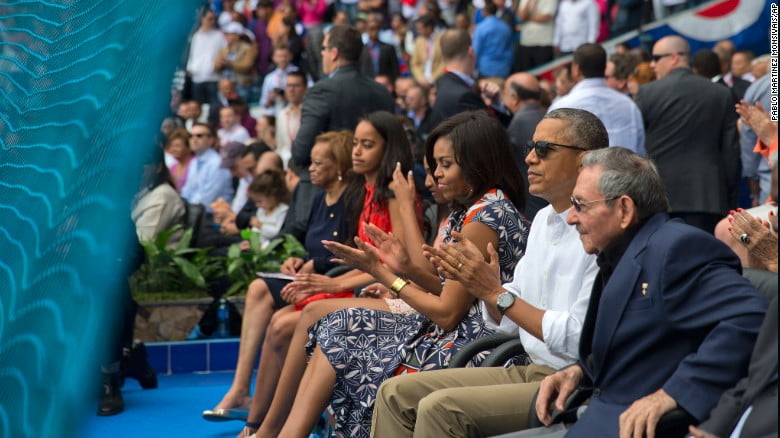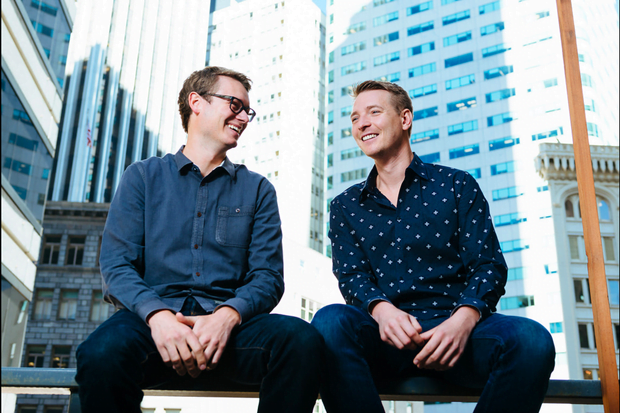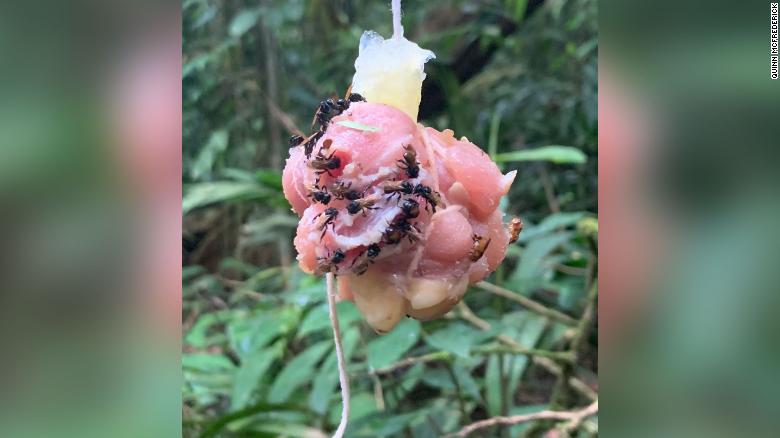Did ‘El Chapo’ Guzman’s escape tunnel cost $5 million? 04:40
For the first time on the border, drug traffickers allegedly bought U.S. property for the sole purpose of building a house to conceal the end of a 415-yard smuggling tunnel from Mexico, authorities said Wednesday.
Inside the life of a drug-trafficking teen
Four people were arrested this week in connection with a raid on the tunnel underneath a three-bedroom house in Calexico, California, that sits about 300 yards north of the international line, authorities said.
The tunnel entrance was inside a restaurant in Mexicali, Mexico, according to U.S. Immigration and Customs Enforcement.
Authorities confiscated 1,532 pounds of marijuana, with a street value of nearly $6 million.
“For the builders, the financiers and the operators of these sophisticated tunnels, there is no light at the end of the tunnel. We will seize your drugs and your tunnel before you even have a chance to use it,” U.S. Attorney Laura Duffy of Southern California said in a statement.
Joel Duarte Medina and Manuel Gallegos Jiminez were arrested in Calexico on Wednesday, and Marcia Manuela Duarte-Medina and her mother, Eva Duarte De Medina, were arrested in Arizona on Tuesday. They were charged with various drug trafficking, money laundering and tunnel-related offenses, authorities said.
The mother and daughter allegedly purchased the land under which the tunnel was later built, authorities said. The defendants and their attorneys couldn’t be immediately reached for comment Wednesday.
The case is also unusual because it’s the first highly sophisticated tunnel discovered in Calexico in a decade, authorities said.
Tunnels have been typically discovered closer to the Otay Mesa border crossing near San Diego, about 125 miles west of Calexico, where the ground is softer and where thousands of warehouses on both sides of the border provide camouflage for smugglers.
Calexico is less desirable for tunnels because the soil is denser and more difficult to break, and the town’s residential character makes it difficult to conceal tunneling activity, authorities said.
Flight attendant who fled security surrenders in suspected cocaine case
The beige stucco house, the newest on the block, sits in a community of single-family homes.
The tunnel, in effect, passes underneath First Street and Second Street and then the 14-foot metal border fence.
Resident Juan Urrea lives one block from the house concealing the tunnel and expressed shock Wednesday.
“This is a peaceful neighborhood. You just don’t hear about stuff like this here,” Urrea said, shaking his head. “Crazy. Just crazy.”
Another neighbor, Yolanda Sanchez, who lives two doors away, said she thought the new house would help property values.
“We were happy because they built this new house. I would see a guy and a lady go in once in a while but only for a few minutes. And then this morning we wake up with a huge, big bang. Helicopter. Police. I got out of my house, and I said, ‘What’s going on!’ And we find out it’s a tunnel,” she said.
Inside the alleged drug house, the front room contained a 3-foot-diameter hole in the floor that led to a shaft descending 32 feet, and then the tunnel featured a rail system, lighting and electricity, which have been features in other smuggling tunnels discovered beneath the border, authorities said.
Traffickers allegedly scouted properties in Calexico and chose a parcel in a residential section, paying $240,000 for the property in April 2015, authorities said.
The house was constructed from October and December, and property owners allegedly told the contractor to leave a space for a floor safe when pouring a cement foundation, authorities said.
In late December, alleged co-conspirators rented a saw with a concrete blade from a business in nearby El Centro, and the saw is believed to have been used to complete the tunnel exit, authorities said.
The house was completed in December at a cost of about $86,000, authorities said.
Drug smuggling began through the tunnel after February 28, authorities said, citing intercepted calls and surveillance.
Smugglers also used a second Calexico residence four miles from the tunnel exit to store the drugs and then they moved the narcotics to a Calexico warehouse, where transportation cells moved the drugs to the cities northward, authorities said.
The use of multiple locations and drivers allowed traffickers to “keep various players in the dark about the organization’s methods,” authorities said in a statement.
Smuggling pot 200 miles away
On March 7, authorities and police in West Covina, California, seized more than 1,350 pounds of marijuana that was earlier smuggled through the tunnel, authorities said. West Covina is close to Los Angeles and is more than 200 miles northwest of Calexico.
This week’s raid is the 10th large-scale drug smuggling tunnel discovered in the San Diego and Imperial counties area since 2006, authorities said. In all, federal agents detected more than 75 cross-border smuggling tunnels in the past five years, mostly in California and Arizona.
[Source:- CNN]





